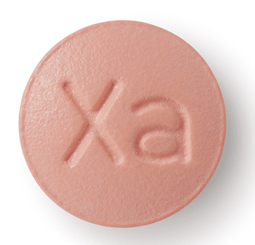
Portola has announced topline results from the first part of the phase 3 ANNEXA-R (Andexanet alfa a novel antidote to the anticoagulant effects of factor Xa inhibitors – rivaroxaban) study, which is evaluating the safety and efficacy of andexanet alfa with the factor Xa inhibitor Xarelto (rivaroxaban).
Results showed that the study met its primary endpoint with high statistical significance. Andexanet alfa administered as an intravenous bolus significantly and immediately reversed the steady-state anticoagulation activity of Xarelto and was well-tolerated. The company expects to present the full data set at the American College of Cardiology’s (ACC) 64th Annual Scientific Session (14–16 March 2015, San Diego, USA). The second part of the ANNEXA-R study, which is evaluating a bolus plus a continuous infusion of andexanet alfa to sustain reversal, is ongoing.
Portola is developing andexanet alfa, a US Food and Drug Administration (FDA)-designated breakthrough therapy, as a universal antidote for patients treated with oral and injectable factor Xa inhibitors who are experiencing a major bleeding episode or who require emergency surgery. Andexanet alfa has been studied in more than 140 volunteers in clinical studies.
“The statistically significant study data, together with results presented previously with apixaban, provide compelling evidence that this ground breaking agent could serve as a universal antidote for factor Xa inhibitor anticoagulants,” says John T Curnutte, executive vice president, research and development for Portola. “Andexanet alfa is unique among the other reversal agents in development in that it has been the only agent to immediately and significantly reverse all of the key pharmacodynamic measurements of coagulation that have been agreed to with the FDA for accelerated approval. These include anti-factor Xa levels, thrombin generation and unbound anticoagulant (free fraction). This has been demonstrated with all of the Factor Xa inhibitors studied to date–apixaban, rivaroxaban, edoxaban and enoxaparin.”
The randomised, double-blind, placebo-controlled study is evaluating the safety and efficacy of andexanet alfa in reversing Xarelto -induced anticoagulation in healthy volunteers aged 50–75 years. Efficacy is being evaluated using biomarker endpoints, with anti-factor Xa levels as the primary endpoint. Secondary endpoints include plasma levels of plasma unbound (free fraction) of Xarelto and thrombin generation levels.
In the second part of the ANNEXA-R study, approximately 40 healthy volunteers will be given Xarelto 20mg once daily for four days and will then be randomised in a 2:1 ratio to receive either andexanet alfa administered as an 800mg intravenous bolus followed by a continuous infusion of 8mg/minute for 120 minutes or to placebo. Data from this part of the study are expected in mid-2015.












